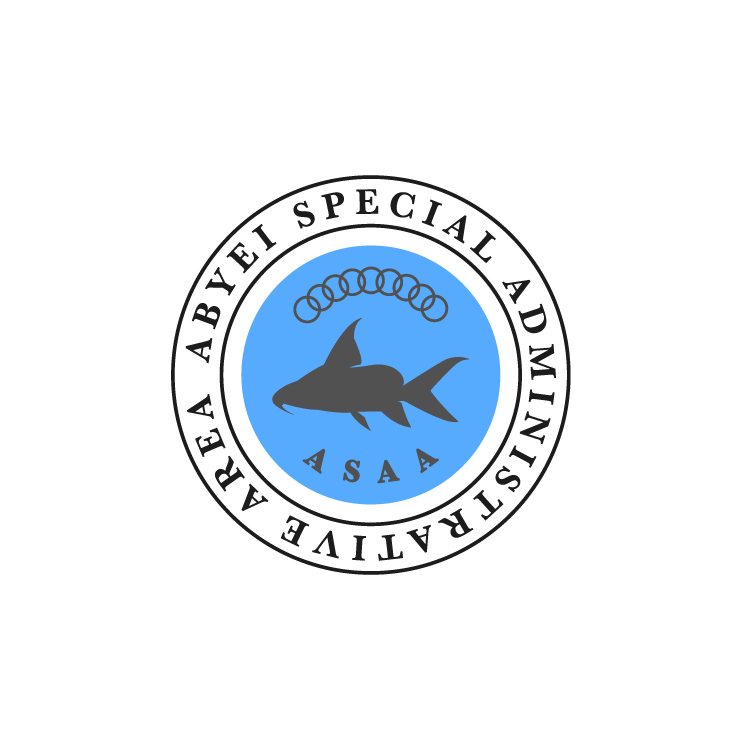Abyei Special Administrative Area Profile
Abyei Area, the Land of Ngok Dinka (9) Chiefdoms is about 10,546 square kilometers. Its approximately falls between the
. Latitude 9°20’50” N to 10°10′ N;
. Longitude 27°50′ E to 29°00′ E.
As per the Court of Arbitration Ruling on 22, July 2009 – at The Hague, Netherlands; The Area consist of Abyei Municipality, and (4) Counties of Alal, Ameth Aguok, Rum Amer and Mijak;
Geographically, Abyei Area borders Northern Bahr Al Ghazal State to the West, Warrap State to the South, Ruweng Administrative Area to the East and Sudan to the North. Its population is about 400,000 persons. However, because of the insecurity and successive displacement, the existing population has dropped to about 250,000 persons, however with the Sudan war intensifying the population is constantly increasing due to the influx of returnees, IDPs and Refugees
The Population is composed of Ngok Dinka Chiefdoms and some other Citizens from different parts of South Sudan, Sudanese, and East Africans.
Vision
A stable and prosperous Administrative Area, with a final status resolved that advance human development across all indicators.
Mission
To provide accountable, transparent and all-inclusive governance that ensures service delivery and equitable sharing of resources, empowerment of communities and the promotion of peaceful co-existence among the people and with Neighboring communities of Abyei Area within South Sudan
Normal 0 false false false EN-US X-NONE AR-SA /* Style Definitions */ table.MsoNormalTable {mso-style-name:"Table Normal"; mso-tstyle-rowband-size:0; mso-tstyle-colband-size:0; mso-style-noshow:yes; mso-style-priority:99; mso-style-parent:""; mso-padding-alt:0in 5.4pt 0in 5.4pt; mso-para-margin-top:0in; mso-para-margin-right:0in; mso-para-margin-bottom:8.0pt; mso-para-margin-left:0in; line-height:107%; mso-pagination:widow-orphan; font-size:11.0pt; font-family:"Calibri",sans-serif; mso-ascii-font-family:Calibri; mso-ascii-theme-font:minor-latin; mso-hansi-font-family:Calibri; mso-hansi-theme-font:minor-latin; mso-bidi-font-family:Arial; mso-bidi-theme-font:minor-bidi; mso-font-kerning:1.0pt; mso-ligatures:standardcontextual;} Core Values
- Inclusivity
- Transparency
- Accountability
- Professionalism
- Resilience
- Collaboration
- Commitment
The Area Key Priorities
Abyei Special Administrative Area has set the following strategic objectives,
- Timely realization of Abyei Final Status
- Construction of power station in Abyei Town
- To foster peaceful coexistence among the residents and with the neighboring communities of Abyei Special Administrative Area and enhance cohesiveness and stability.
- To strengthen Abyei Special Administrative Area public institutions for effective, efficient and equitable service delivery.
- To ensure food security, adequate nutrition and foster economic well-being by developing agriculture, animal resources and fisheries
- To strengthen institutional capacity for public financial management (PFM), accountability and transparency and create an enabling environment for trade and investment
- To provide universal and affordable access to health, water and sanitation services and improve the quality of healthcare delivery at all levels.
- To build an educated and informed people by improving quality and access to education, while building the institutional and human resource capacity in the education sector.
- To ensure inclusion and participation of women, youth, people with disabilities and other special groups in all spheres (economic, social, political and cultural).
- Recognize Abyei’s cultural diversity, promote and preserve culture and nurture talent in music and sports.
- To prevent environmental degradation and mitigate the impact of climate change.
- To facilitate movement of people and goods, create linkages and facilitate trade and services by improving transport networks and infrastructure
